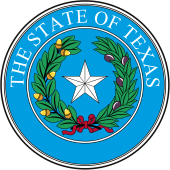
A Texas District Court Judge ruled last month that Title 7’s protection from discrimination based on sex for sexual orientation and gender identity means protected status, not protected conduct.
In 2020 the Supreme Court ruled in Bostock v Clayton County that Title 7, part of the 1964 Civil Rights Act, protects people from discrimination on the basis of “sex,” which extends to people based on sexual orientation and gender identity. It was a straightforward case that says you cannot discriminate against anybody based on how they identify or who they are. That case was over a man who was fired for his sexual orientation.
In 2021, the Equal Employment Opportunity Commission issued guidance (July guidance) on what the Bostock decision means employers, employees, applicants, retirees, and those related to within employers over 15 employees, and that are not religious affiliated or
Most of the guidelines were common sense preventions of discrimination that protects all LGBTQI+ and transgender people and those who are not.
But two problematic provisions stated that “employers may not deny an employee equal access to a bathroom, locker room, or shower that corresponds to the employee’s gender identity. In other words, if an employer has separate bathrooms, locker rooms, or showers for men and women, all men (including transgender men) should be allowed to use the men’s facilities and all women (including transgender women) should be allowed to use the women’s facilities.” And “…although accidental misuse of a transgender employee’s preferred name and pronouns does not violate Title VII, intentionally and repeatedly using the wrong name and pronouns to refer to a transgender employee could contribute to an unlawful hostile work environment.”
The state of Texas sued the Equal Employment Opportunity Council, stating that the EEOC violated the First Amendment, the Administrative Procedure Act speaking under authority and discipline as if it was binding law.
Later in March 2022 the Department of Health and Human Services issued guidance (March guidance) in response to the Texas Department of Family Protective Services investigating parents for giving their children Transgender therapy. This was due to an opinion written by Ken Paxton arguing that giving kids transgender therapy equaled child abuse.
The March guidance reminded health care providers and medical practitioners who received federal funds not to discriminate giving people transgender therapy on the basis of their gender identity. “If a parent and their child visit a doctor for a consultation regarding or to receive gender affirming care, and the doctor or other staff at the facility reports the parent to state authorities for seeking such care, that reporting may constitute violation of Section 1557 if the doctor or facility receives federal financial assistance,” said the March guidance
The state of Texas added the March guidance to their lawsuit as well.
The Federal District Court ruled in favor of Texas. The Court ruled that the Bostock decision only talks about the protection of people based on their identity, not conduct.
“In total, Justice Gorsuch referenced “homosexuality or transgender status” fifteen times. Each and every time, his definition and description of “status” tracks with [the state of Texas’] reading of Bostock: Title VI prohibits employment discrimination against an individual “for being homosexual,” “for being transgender”…but not necessarily all correlated conduct,” said Judge Kacsmaryk
Judge Kacsmaryk continually referred back to the Supreme Court’s majority opinion which said one cannot discriminate against a person because of their status, who they are, or who they identify as. But that does not apply to their conduct.
Judge Kacsmaryk referenced other Supreme Court cases to show that a “cursory review of Supreme Court and circuit cases reveals that ”status” and “conduct” do not necessarily merge every time an employee plausibly pleads a “closely associated” trait.”
Thus, the Bostock decision does not apply to someone wanting to go into the bathroom of their preferred sex or wanting to be on the sports team of the gender they identify as. According to Judge Kacsmaryk, and the Supreme Court in the Bostock case, Bostock expressly does not want to touch those questions at all.
Judge Kacsmaryk drove the point that in the workplace you are protected for who you are in terms of sexual orientation and gender identity. At home you are protected for what you do.
Furthermore, Judge Kacsmaryk ruled that both of these guidelines were unlawful and violated the Administrative Procedure Act. The APA “governs the process by which federal agencies develop and issue regulations. It includes requirements for publishing notices of proposed and final rulemaking in the Federal Register, and provides opportunities for the public to comment on notices of proposed rulemaking. The APA requires most rules to have a 30-day delayed effective date.”
Judge Kacsmaryk ruled both guidance’s unlawful. “The June 15 Guidance imposes dress-code, bathroom, and pronoun accommodations as “existing requirements under the law” and “established legal positions” in light of Bostock and prior EEC decisions interpreting Title [7]. But Title [7] as interpreted in Bostock—- does not require such accommodations. The same is true of the March 2 Guidance.”
Judge Kacsmaryk further stated the March guidance was arbitrary and capricious because the Health and Human Services department misdrew conclusions the laws they used do not support.